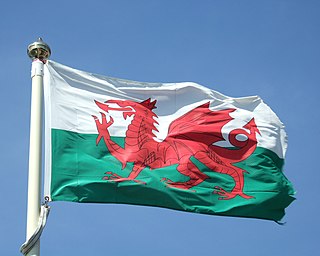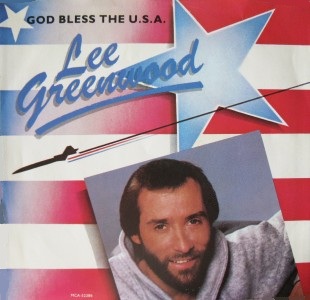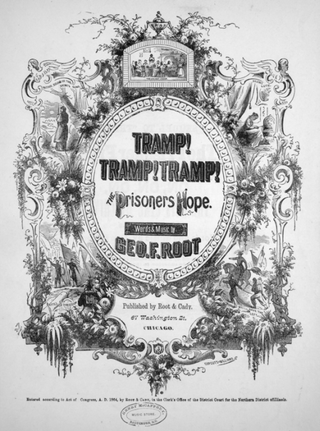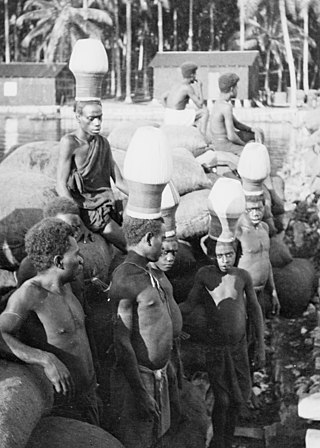
"Advance Australia Fair" is the national anthem of Australia. Written by Scottish-born Australian composer Peter Dodds McCormick, the song was first performed as a patriotic song in Australia in 1878. It replaced "God Save the Queen" as the official national anthem in 1974, following a nationwide opinion survey, only for "God Save the Queen" to be reinstated in January 1976. However, a plebiscite to choose the national song in 1977 preferred "Advance Australia Fair", which was in turn reinstated as the national anthem in 1984. "God Save the Queen" became the royal anthem, and is used at public engagements attended by the King or members of the monarchy of Australia. The lyrics of the 1984 version of "Advance Australia Fair" were modified from McCormick's original and its verses were trimmed down from four to two. In January 2021, the official lyrics were changed once again, in recognition of the long habitation of Indigenous Australians.

"God Save the King" is the national anthem of the United Kingdom and the royal anthem of each of the British Crown Dependencies, one of two national anthems of New Zealand, and the royal anthem of most Commonwealth realms. The author of the tune is unknown and it may originate in plainchant, but an attribution to the composer John Bull has sometimes been made.

"Hen Wlad Fy Nhadau" is the unofficial national anthem of Wales. The title, taken from the first words of the song, means "The Old Land of My Fathers" in Welsh, usually rendered in English as simply "Land of My Fathers". The words were written by Evan James and the tune composed by his son, James James, both residents of Pontypridd, Glamorgan, in January 1856. The earliest written copy survives and is part of the collections of the National Library of Wales.
"O Canada" is the national anthem of Canada. The song was originally commissioned by Lieutenant Governor of Quebec Théodore Robitaille for the 1880 Saint-Jean-Baptiste Day ceremony; Calixa Lavallée composed the music, after which French-language words were written by the poet and judge Sir Adolphe-Basile Routhier.

"The Star-Spangled Banner" is the national anthem of the United States. The lyrics come from the "Defence of Fort M'Henry", a poem written on September 14, 1814, by 35-year-old lawyer and amateur poet Francis Scott Key after witnessing the bombardment of Fort McHenry by British ships of the Royal Navy in Outer Baltimore Harbor in the Patapsco River during the Battle of Baltimore in the War of 1812. Key was inspired by the large U.S. flag, with 15 stars and 15 stripes, known as the Star-Spangled Banner, flying triumphantly above the fort during the U.S. victory.

"The Maple Leaf Forever" is a Canadian patriotic song written by Alexander Muir (1830–1906) in 1867, the year of Canada's Confederation. He wrote the work after serving with the Queen's Own Rifles of Toronto in the Battle of Ridgeway against the Fenians in 1866.
"God Bless America" is an American patriotic song written by Irving Berlin of Belarusian origin during World War I in 1918 and revised by him in the run up to World War II in 1938. The later version was notably recorded by Kate Smith, becoming her signature song.

Bougainville, officially the Autonomous Region of Bougainville, is an autonomous region in Papua New Guinea. The largest island is Bougainville Island, while the region also includes Buka Island and a number of outlying islands and atolls. The current capital is Buka, situated on Buka Island.

"Land of the Free" is the national anthem of Belize. The words were written by Samuel Alfred Haynes in 1929 based upon Haynes poem “Land of the Gods.” The musical arrangement for “Land of the Gods,” was composed with Selwyn Walford Young in 1930. “Land of the Gods” was changed to “Land of the Free” by the George Cadle Price administration, officially adopted as the National Anthem of Belize in 1981.
"Forged from the Love of Liberty" is the national anthem of the Trinidad and Tobago. Originally composed as the national anthem for the short-lived West Indies Federation (1958–1962), this song was edited and adopted by Trinidad and Tobago when it became independent in 1962. It was written and composed by Patrick S. Castagne.

"Texas, Our Texas" is the regional anthem of the U.S. state of Texas, adopted in the late 1920s as the official state song.

"God Bless the U.S.A." is an American patriotic song written and recorded by American country music artist Lee Greenwood, and is considered to be his signature song. The first album it appears on is his 1984 album You've Got a Good Love Comin'. It reached No. 7 on the Billboard magazine Hot Country Singles chart when originally released in the spring of 1984. That summer, the song was included in a film about President Ronald Reagan, the Republican presidential nominee, that was shown at the 1984 Republican National Convention. "God Bless the U.S.A." gained prominence during the 1988 United States presidential election campaign, when Greenwood performed the song at the 1988 Republican National Convention and at rallies for the Republican nominee, George H.W. Bush. The song was also featured in television advertisements for Bush. The song became popular again during the Gulf War in 1990 and 1991. As a result of its newfound popularity, Greenwood re-recorded the track for his 1992 album American Patriot.

"You're a Grand Old Flag" is an American patriotic march. The song, a spirited march written by George M. Cohan, is a tribute to the U.S. flag. In addition to obvious references to the flag, it incorporates snippets of other popular songs, including one of his own. Cohan wrote it in 1906 for his stage musical George Washington, Jr.

"The Bonnie Blue Flag", also known as "We Are a Band of Brothers", is an 1861 marching song associated with the Confederate States of America. The words were written by the entertainer Harry McCarthy, with the melody taken from the song "The Irish Jaunting Car". The song's title refers to the unofficial first flag of the Confederacy, the Bonnie Blue Flag. The left flag on the sheet-music is the Bonnie Blue Flag.

The Flag of Bougainville is a symbol of the Autonomous Region of Bougainville in Papua New Guinea. It was originally adopted in 1975 by the secessionist Republic of the North Solomons.
God Bless Australia was a proposed 1961 Australian national anthem by Australian songwriter Jack O'Hagan who provided patriotic lyrics to the traditional tune of Waltzing Matilda.

"Tramp! Tramp! Tramp! " was one of the most popular songs of the American Civil War. George F. Root wrote both the words and music and published it in 1864 to give hope to the Union prisoners of war. The song is written from the prisoner's point of view. The chorus tells his fellow prisoners that hope is coming. A Confederate version and various other versions have been made.
The U.S. state of Arizona has two official state songs, although neither is named as such. The official state anthem is "The Arizona March Song" and the alternate state anthem titled "Arizona".

The upe is a traditional headdress worn by men in parts of Bougainville to symbolise their transition to adulthood. The term is also used to refer to the process of undergoing the transition and to the initiates themselves.

The Emblem of Bougainville is an official symbol of the Autonomous Region of Bougainville in Papua New Guinea.














